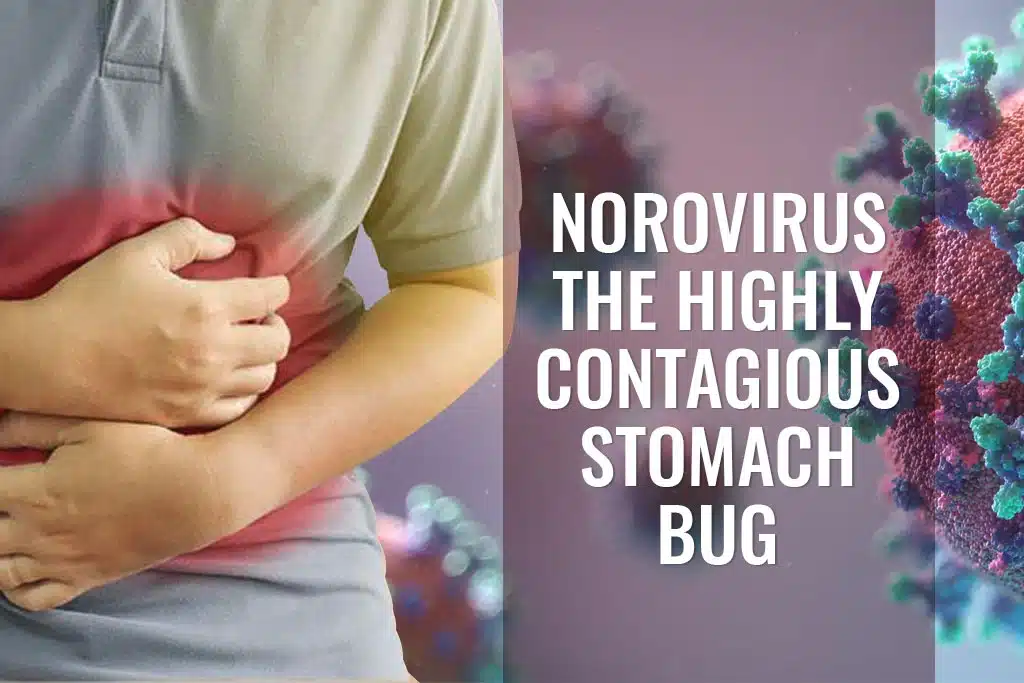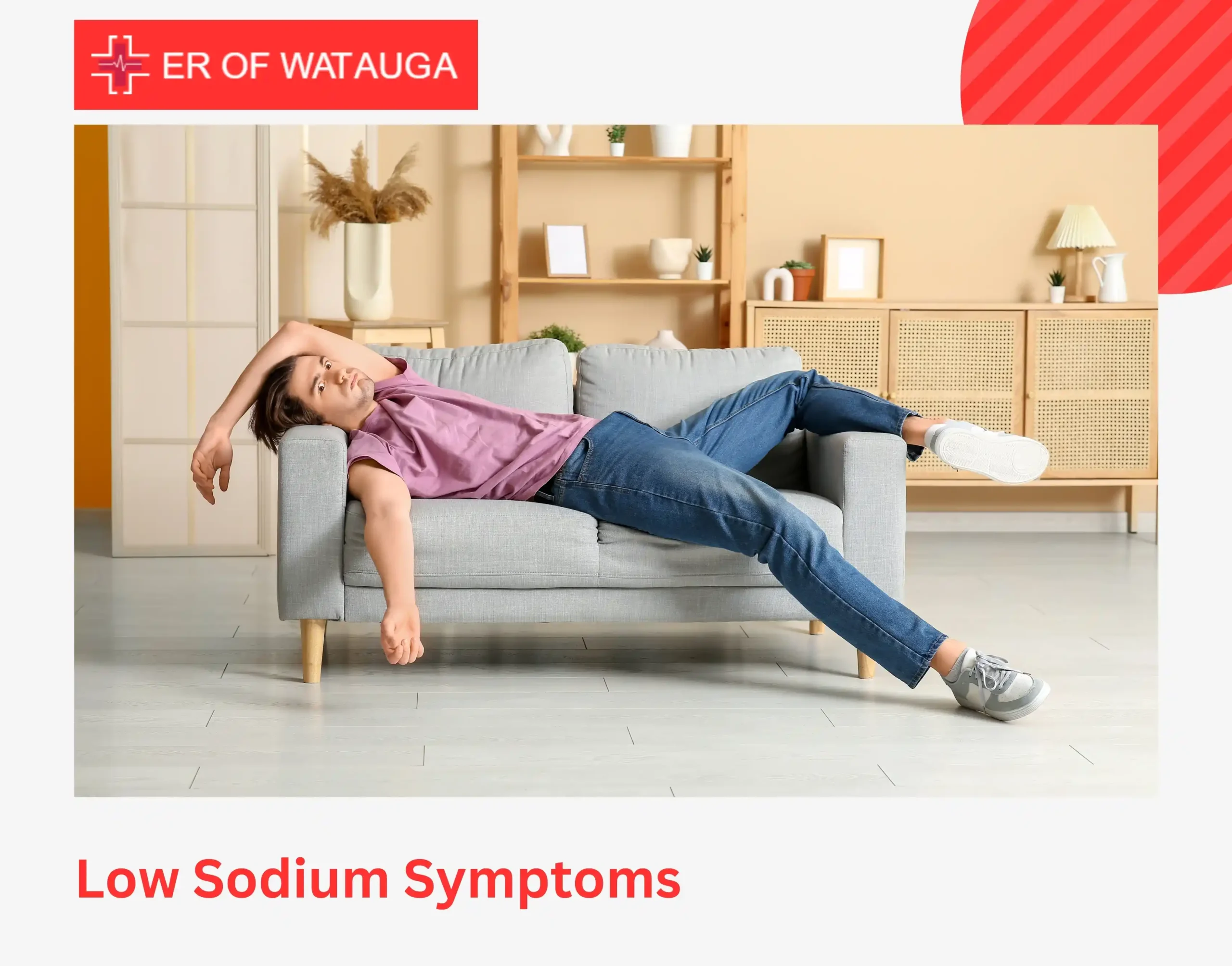Are you curious to know how you got infected with Norovirus, what effect it causes, what treatment you need, and how to prevent it? Welcome to the solution to your concerns. Norovirus is the most prevalent cause of vomiting, diarrhea, and foodborne sickness in the United States. Norovirus can infect and sicken people of all ages, and it spreads rapidly. At ER of Watauga, we offer specialized medical services in Fort Worth and nearby areas. Get a quote for a free consultation.
Due to the wide variety of Noroviruses, you run the risk of contracting the disease multiple times throughout your lifetime. Infection with one kind of Norovirus may not protect other forms. It is feasible to create protection against certain types. However, it is still being determined how long protection lasts. This could explain why so many people of all ages become ill during Norovirus outbreaks. Your genes also influence your susceptibility to Norovirus infection. In this blog, we will help you know everything about Norovirus, its diagnosis, treatment, and preventive measures.
What is Norovirus?
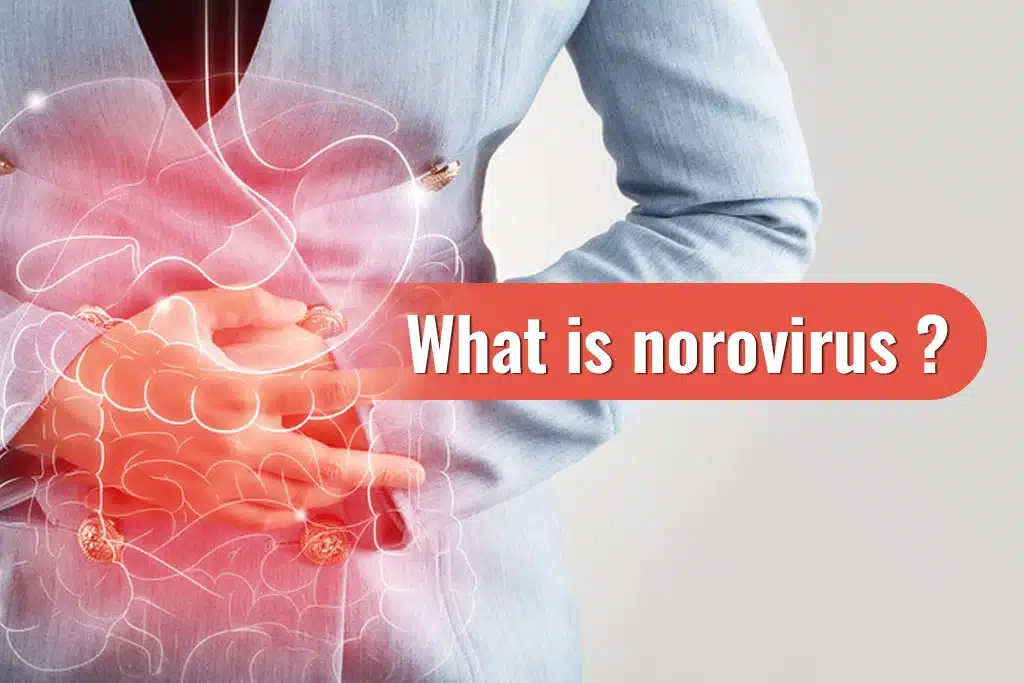
Noroviruses are a group of virus that causes severe vomiting and diarrhea. It is a very common sickness that is highly contagious. Norovirus outbreaks are mainly seasonal, occurring during the winter months. The infection is the leading cause of foodborne illness in the United States.
In 1968, a school in Norwalk, Ohio, USA, saw the first Norovirus outbreak. As a result, the initial strain of Norovirus became known as the Norwalk virus.
Norovirus vs Stomach Flu
Norovirus causes gastroenteritis, sometimes referred to as the “stomach flu.” The influenza virus causes respiratory illness, not gastroenteritis.
Norovirus Without Vomiting
A Norovirus can cause symptoms other than vomiting and diarrhea. Sometimes people experience less evident symptoms, such as abdominal discomfort, nausea, or disrupted digestion. People can have a stomach virus without any symptoms.
Norovirus vs food poisoning
Both are different diseases, Norovirus typically lasts 1 to 3 days, whereas food poisoning hardly lasts more than a day or even a few hours. A stomach bug’s symptoms can take 12 to 48 hours to develop, whereas food poisoning symptoms normally appear within 6 hours of consuming an infected dish.
Rotavirus vs Norovirus
There isn’t much difference between Norovirus and rotavirus. Clinically, their symptoms are identical, and you cannot identify the difference between them unless you perform a test. However, rotavirus is more prevalent in children, while Norovirus is more common in adults.
Symptoms and Causes
What are the symptoms of Norovirus?
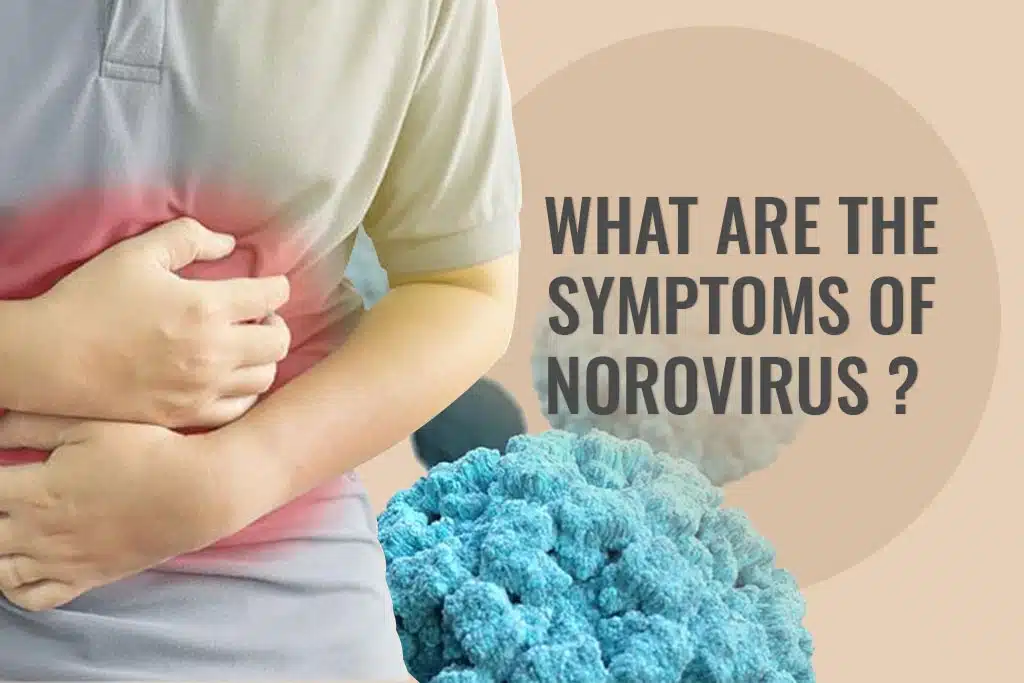
Symptoms of Norovirus infection often appear 12 to 48 hours after exposure. Most Norovirus infections resolve within 1 to 3 days, although they can still spread the virus for a few days afterward.
The most common symptoms of Norovirus include:
- Diarrhea
- Vomiting
- Nausea
- Stomach ache
Additional symptoms include:
- Fever
- Headache
- Body pain
If you have a Noro infection, you may feel ill and vomit or have diarrhea several times per day. This can cause dehydration, particularly in small children, the elderly, and those with underlying ailments. Dehydrated children may weep with few or no tears and exhibit unusual sleepiness or fussiness.
Are Norovirus symptoms the same in children and adults?
The symptoms of Norovirus are largely the same in children and adults. Adults may have more diarrhea than children, whereas children may vomit more than adults.
What causes Norovirus?
Norovirus is caused by a virus from the family Caliciviridae. When this virus enters your body, it causes swelling or inflammation of your stomach and intestines. This is a disorder known as gastroenteritis, and it causes Norovirus symptoms.
How do you get Norovirus?
Noroviruses can be contracted by accidentally ingesting microscopic particles of vomit from someone sick with the virus. If you become infected with Norovirus, you may shed billions of Noroviruses particles that are invisible to the naked eye. Only a few of its particles can make you and others sick.
Norovirus can be contracted through
- Direct contact with an infected person, such as while caring for them, sharing food or utensils, eating food handled by them
- Consuming Noro-contaminated foods or beverages
- Putting unclean fingers in your mouth after touching Norovirus-contaminated surfaces or objects
How is Norovirus spread
Norovirus spreads through contaminated food
This may happen when:
- A person infected with Noro handles food with their bare hands
- Food is placed on a counter or surface covered in excrement or vomit
- Tiny drops of vomit from a Noroviruses patient fly through the air and land on food
- Contaminated water is used to cultivate food, such as oysters, and to water fruits and vegetables in the field
Norovirus spreads through polluted water
Recreational or drinking water might get polluted with Norovirus:
- At the source, such as when a septic tank overflows into a well
- When a person infected with Noro vomits or poops in water
- When water is not properly treated, such as with insufficient chlorine
Norovirus spreads through infected people and contaminated surfaces
This may happen when:
- A person infected with Noro touches surfaces with their bare hands
- Noro-contaminated food, water, or items are placed on surfaces
- A person with Norovirus vomits tiny drops into the air, which land on surfaces or enter another person’s mouth
- A person with Noro has diarrhea that splatters on surfaces
How long is Norovirus contagious
People infected with Norovirus are contagious from the moment they become unwell until at least three days following recovery. Some persons may remain contagious for up to two weeks following recovery. Thus, proper hand washing is essential.
What are the risk factors for Norovirus?
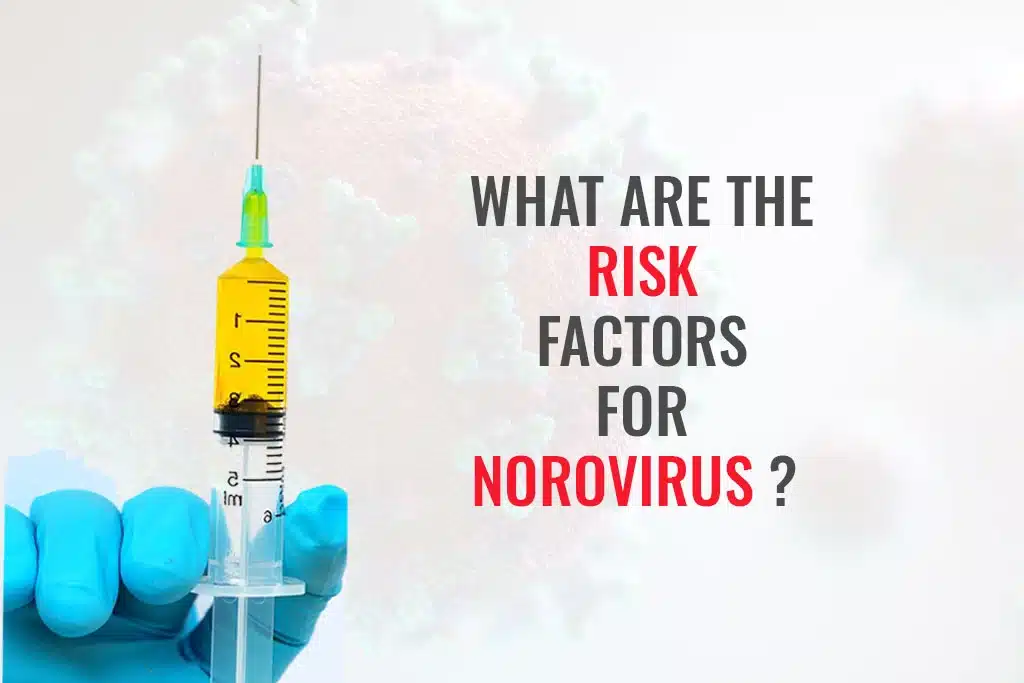
Anyone can contract Norovirus. You are more prone to contract if:
- You come into contact with someone who carries the virus
- Your genes predispose you to symptoms
What are the complications of Norovirus 2023?
If you have Norovirus, you will feel quite ill. This can cause you to vomit and have diarrhea. When your body is unable to retain nutrients, you are in danger of becoming dehydrated.
Symptoms of dehydration are:
- Peeing less frequently or with darker-colored pee
- A dry mouth
- Feeling weak or dizzy
- A headache
Children may exhibit the symptoms listed above, coupled with
- Crying without tears
- Fussiness
- Sleepiness persists throughout the day
Norovirus might make it difficult to eat or drink because the inflammation in your intestines and stomach causes vomiting or diarrhea. You should still attempt to eat and drink. You can accomplish this by eating and drinking more frequently throughout the day, eating slowly with little bits, and taking small sips of water. If you eat too fast or too much, your body may reject the meal.
How to test for Norovirus
A healthcare expert will diagnose Norovirus based on your symptoms. Testing is normally unnecessary, although a physician may analyze a stool sample to confirm your diagnosis. Tests are typically required if you have an underlying medical issue that impairs the performance of your immune system and ability to fight infections.
How is Norovirus treated?
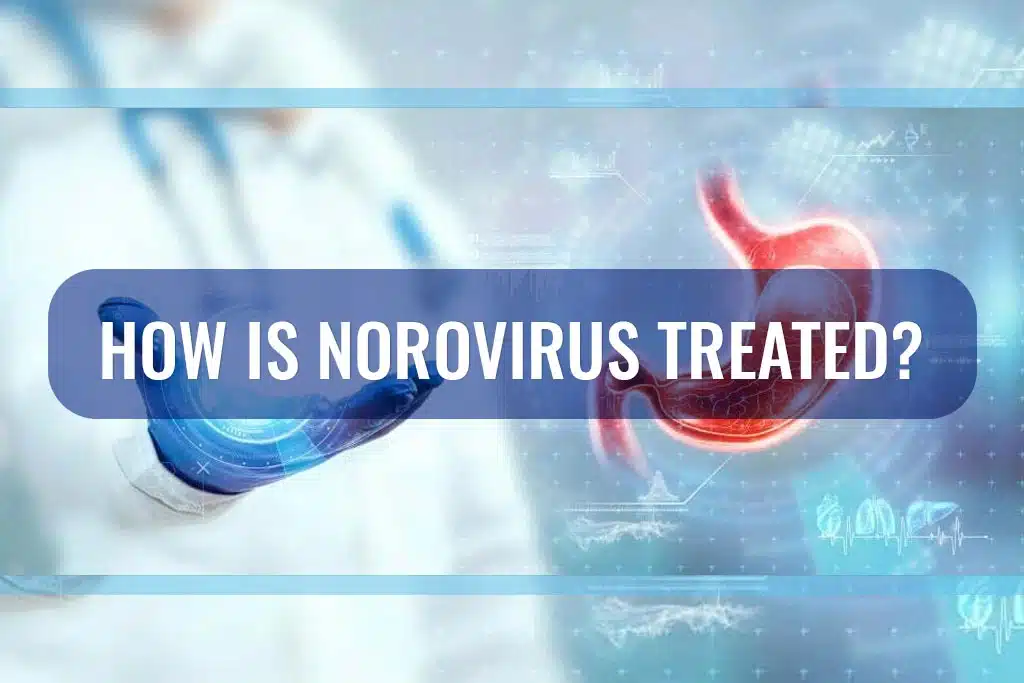
There is no cure for Norovirus. The infection’s treatment focuses on easing your symptoms, which should resolve within one to three days. You can control your symptoms by
- Drinking plenty of liquids, especially those containing electrolytes
- Getting plenty of rest
- Eating soft and bland foods
If you have Norovirus, you should consume plenty of liquids to replenish fluids lost through vomiting and diarrhea. This will help to avoid dehydration. Sports drinks and other beverages containing no caffeine or alcohol can aid with minor dehydration. However, these beverages may not provide essential nutrients and minerals. Oral rehydration fluids available over the counter are most effective for mild dehydration.
Dehydration can cause major problems. Severe dehydration may necessitate hospitalization for treatment with fluids administered through a vein. Keep an eye out for indicators of dehydration in children with Norovirus infection. Dehydrated children may weep with few or no tears and exhibit unusual sleepiness or fussiness.
What kills Norovirus
A mixture of 5 to 25 tablespoons of household bleach in a gallon of water is effective for eliminating Norovirus, but it loses potency when exposed to large amounts of organic materials.
Does Lysol kill Norovirus?
Many home cleansers and wipes are ineffective against Norovirus. Clorox and Lysol Disinfecting Wipes claim to eliminate 99.9% of viruses and germs, although this excludes Noroviruses.
What kills Norovirus besides bleach
Apply cat litter or baking soda to the afflicted area. Steam the carpet or furniture for five minutes at 158 degrees Fahrenheit or one minute at 212 degrees Fahrenheit. OR, disinfect with an EPA-registered antibacterial agent that is effective against Norovirus.
Does hand sanitizer kill Norovirus?
Hand sanitizer cannot kill the Noro-causing microorganisms. Always use soap and water to clean thoroughly. When working with contaminated objects or surfaces, wear disposable gloves.
What to eat with Norovirus
The most important thing to remember is to rest your stomach and intestines. You can accomplish this by abstaining from solid foods for an extended period and drinking just clear liquids. As your symptoms subside, you can begin eating soft, bland foods that are easier to digest.
Is there a Norovirus vaccine?
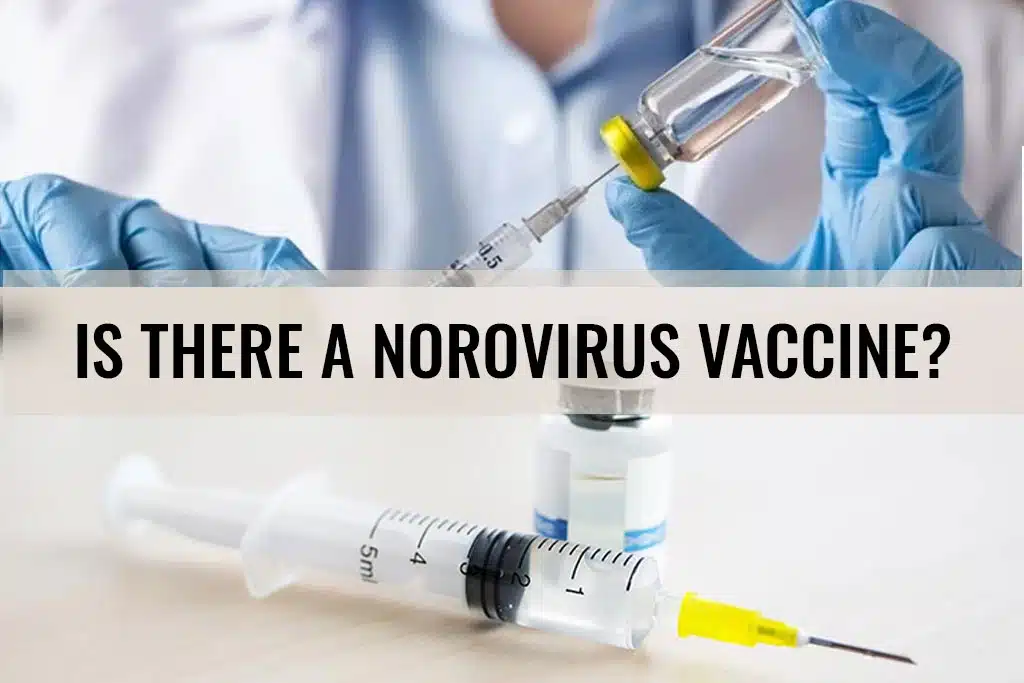
There is currently no authorized Norovirus vaccine, however, recent human clinical effectiveness trials utilizing virus-like particle-based vaccines have shown hope. Several new Noro vaccine platforms are currently in research and will most likely improve Norovirus vaccines in the future.
How long does Norovirus last
Most patients recover in one or two days, with no long-term health consequences. Dehydration is a worry for the very young, the old, and those with weaker immune systems. Occasionally, infected persons may experience milder symptoms for a week or more.
How long does Norovirus last in adults?
Adults infected with Noroviruses are contagious from the moment they get unwell until at least three days following recovery. They can sometimes remain contagious for up to two weeks following healing.
How can you prevent Norovirus?
Wash your hands well
Wash your hands frequently with soap and water for at least 20 seconds, particularly:
- After using the restroom or changing diapers
- Before eating, cooking, or handling food
- Before giving yourself or someone else medication
Even if you feel better, you should continue to wash your hands frequently. Noroviruses can be identified in your vomit or feces even before you feel ill. The virus can also remain in your stool for two weeks or more after you recover, allowing you to spread Norovirus throughout that time.
Hand sanitizer does not effectively combat Norovirus. Hand sanitizers can be used in conjunction with hand washing, but they are not a substitute for the latter, which is preferable.
Handle and prepare food safely
Follow these guidelines before cooking or eating:
- Wash fruits and vegetables thoroughly
- Oysters and other shellfish should be properly cooked to a minimum internal temperature of 145°F
- Regularly clean and sanitize kitchen equipment, counters, and surfaces
Be aware that:
- It is relatively heat resistant, withstanding temperatures of up to 145°F
- Quick steaming techniques may not heat dishes sufficiently to destroy noro
- Food that could be infected with Norovirus should be thrown away
When you are sick, do not make and handle food, or care for others
You should not prepare meals for others or offer healthcare while you are sick, and for at least two days (48 hours) after symptoms have subsided. This also applies to sick employees in restaurants, schools, daycares, long-term care homes, and other settings where they may expose others to Noroviruses.
Clean and disinfect surfaces
When someone vomits or has diarrhea, always clean and disinfect the entire area promptly. You should:
- Wear rubber or disposable gloves, wipe the area with paper towels, and dispose of them in a plastic garbage bag
- Disinfect the area as indicated by the product label
- Leave the bleach disinfectant on the affected area for a minimum of 5 minutes
- Clean the entire area with soap and hot water
- Do the laundry, take out the garbage, and wash your hands
Wash your laundry thoroughly
Clothing or linens that have been contaminated with vomit or feces should be removed and washed immediately.
You should:
- Wear rubber or disposable gloves
- Handle goods with care and avoid shaking them
- Wash the clothes in detergent and hot water for the greatest cycle duration available, then the machine dries on the highest heat setting
- Afterward, wash your hands with soap and water
Can you get Norovirus twice
Yes, you can catch Norovirus more than once. There are various forms of noroviruses. Your body may develop a limited immunity (viral protection) against the first kind of Norovirus, but not to all forms. This means you could get sick with Noro several times in your life. If you have immunity to a form of Noroviruses, it may not stay indefinitely. This means there could be a significant period between your first and second illnesses.
What can I expect if I have Norovirus?
Its symptoms are typically immediate and severe. You will most likely vomit or have diarrhea for a few days until the infection clears. The mere thought of eating or drinking can cause nausea. However, if you do not eat or drink, you risk becoming dehydrated. If you are unable to eat or drink, get medical attention.
There are various strains of Noroviruses, so if you get sick once, you are likely to get sick again since your body has not developed tolerance to all types. The sickness is usually short-lived and has no lasting consequences.
How long does Norovirus stay in my system?
When Norovirus enters your body, it appears in your feces before you get symptoms. It can also remain in your system for up to two weeks after your symptoms resolve. You are only contagious after being infected and for 48 hours after your symptoms have stopped.
When should I see a healthcare provider?
If you are unable to eat or drink, consult a healthcare provider. This can cause dehydration. You should also consult your doctor if your symptoms linger for more than three days.
Conclusion
Norovirus is a virus that appears unexpectedly and causes frustration. You need to eat and drink, yet your body has difficulty keeping it down. Fortunately, the condition lasts only a few days. Rather than eating heavy meals, try eating and drinking little nibbles or sips throughout the day. If you are unable to eat or your symptoms persist for more than three days, contact us for a healthcare practitioner. To avoid spreading it, wash your hands frequently with soap and water. ER of Watuga is the prominent emergency room in Fort Worth offering a comprehensive range of emergency coverage for various diseases including Norovirus infection. We employ the best team of medical practitioners with years of experience in the relevant field. You can rely on us to acquire prompt and effective medical services when needed. Feel free to get in touch with us today to book an appointment.
FAQs
How to avoid Norovirus outbreaks on cruise ships?
The most important way to avoid Noroviruses aboard a cruise ship is to wash and sanitize your hands as often as possible! Most cruise ships have a crew who can administer hand sanitizer as you enter the buffets and other crowded areas where people congregate.
Can dogs get Norovirus?
Yes, they can! While it was previously thought that the form of Norovirus that infects humans could not be transmitted to other animals, multiple studies have demonstrated that the virus may indeed spread from humans to dogs.
What are the effects of Norovirus during pregnancy?
Aside from the risk of dehydration, Noroviruses rarely causes significant sickness and has no long-term repercussions. If you are pregnant, it poses no harm to your unborn child; however, you should drink water frequently to avoid dehydration.
Can your body develop Norovirus immunity?
It is feasible to develop immunity against certain types of Noroviruses. However, it is unclear how long protection lasts.
Is Norovirus seasonal?
Norovirus outbreaks are most common between November and April in nations above the equator, and April and September in countries below the equator. There is usually no defined season for breakouts along the equator.
